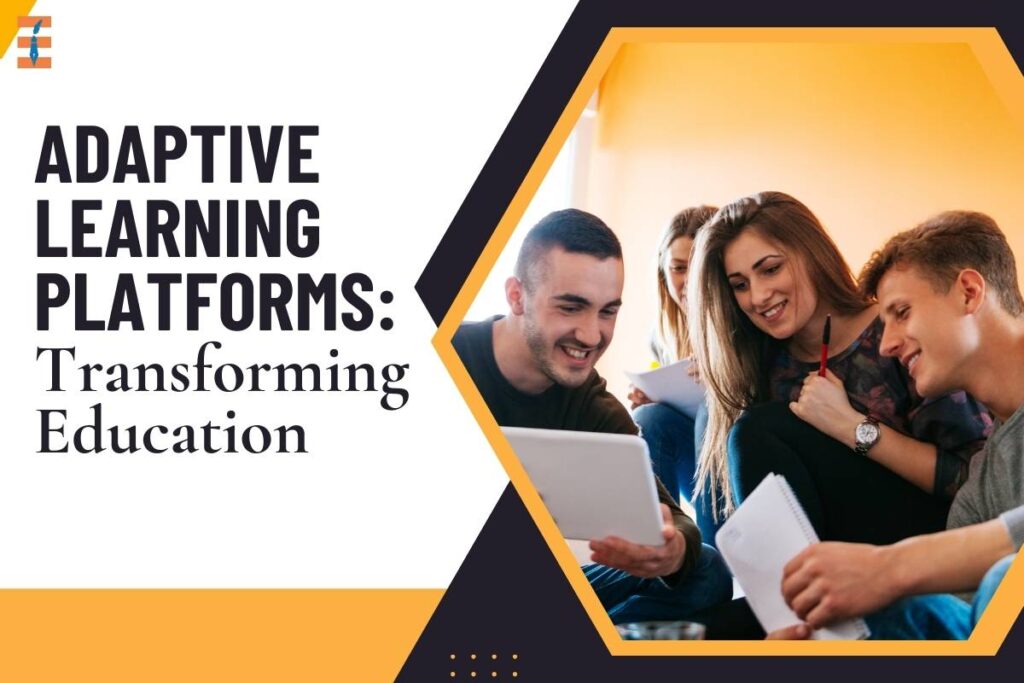In the digital age, education is undergoing a transformative shift, and at the forefront of this evolution are adaptive learning platforms. These innovative tools leverage technology to tailor educational experiences, catering to the unique needs and learning styles of each individual. This article explores the concept of adaptive learning platforms, their impact on education, and the potential they hold for revolutionizing the way we learn.
The Rise of Adaptive Learning Platforms:
1. Understanding Adaptive Learning
Adaptive learning is an educational approach that uses technology to customize learning experiences based on an individual’s progress and performance. Unlike traditional one-size-fits-all methods, these platforms employ algorithms and data analytics to deliver personalized content, pacing, and assessments.
2. How Adaptive Learning Works
Adaptive learning platforms gather data on a learner’s strengths, weaknesses, and learning preferences through assessments, quizzes, and interactive activities. The system then analyzes this data to generate a tailored learning path. As the learner progresses, the platform continuously adjusts the content, providing additional support in challenging areas and accelerating through mastered concepts.
The Role of Artificial Intelligence
Artificial Intelligence (AI) is a cornerstone of adaptive learning platforms. Machine learning algorithms process vast amounts of data to understand individual learning patterns and predict future needs. This real-time adaptation ensures a dynamic and responsive learning environment, optimizing the educational journey for each student.
Key Features of Adaptive Learning Platforms:
1. Personalized Learning Paths
These platforms create individualized learning paths for students. These paths take into account the learner’s proficiency in different topics, allowing them to focus on areas where they need improvement and progress at their own pace.
2. Real-Time Feedback
Immediate feedback is a critical aspect of adaptive learning. Students receive real-time assessments and feedback, enabling them to understand their performance, identify areas for improvement, and make necessary adjustments to their learning strategies.
3. Flexibility in Learning Styles

People have diverse learning styles, and adaptive platforms recognize and accommodate these differences. Whether a student learns best through visual aids, interactive simulations, or textual explanations, adaptive learning adjusts content delivery to suit individual preferences.
4. Continuous Assessment
Adaptive learning platforms move away from traditional exam-centric assessments. Instead, they employ continuous assessment methods, allowing educators and learners to track progress consistently. This ongoing evaluation provides a more accurate representation of a student’s understanding and skills.
5. Gamification Elements
To enhance engagement, many of these platforms incorporate gamification elements. By integrating game-like features such as rewards, badges, and progress tracking, these platforms make learning enjoyable and motivate students to stay committed to their educational journey.
Benefits of Adaptive Learning Platforms
1. Personalized Attention
One of the primary advantages of adaptive learning is the ability to provide personalized attention to each learner. The platform identifies individual strengths and weaknesses, tailoring content to address specific needs. This personalization fosters a deeper understanding of concepts and boosts overall academic performance.
2. Increased Engagement
Adaptive learning platforms leverage interactive and dynamic content, making the learning experience more engaging. The incorporation of multimedia, simulations, and gamification elements captures students’ attention and maintains their interest throughout the learning process.
3. Self-Paced Learning
With adaptive learning, students have the flexibility to learn at their own pace. This self-paced approach accommodates different learning speeds, allowing students to delve deeper into challenging topics or progress quickly through familiar concepts.
4. Efficient Use of Resources
It optimizes resource utilization. By focusing on areas where individual students need the most support, these platforms eliminate unnecessary repetition of content that students have already mastered. This efficiency saves time and resources for both educators and learners.
5. Data-Driven Insights
Educators can access detailed data on students’ performance and progress through adaptive learning platforms. This data-driven approach enables teachers to identify trends, assess the effectiveness of teaching methods, and intervene when students require additional support.
Challenges and Considerations
1. Implementation Hurdles
While the potential benefits of adaptive learning platforms are significant, their successful implementation requires overcoming various challenges. These include technological infrastructure, training for educators, and integration with existing educational systems.
2. Data Privacy Concerns

The collection and analysis of student data raise legitimate privacy concerns. Institutions and platform developers need to implement robust security measures and adhere to data protection regulations to safeguard sensitive information.
3. Accessibility Issues
The effectiveness of adaptive learning relies on students’ access to technology. Ensuring equitable access for all students, regardless of socioeconomic background, remains a challenge that educators and policymakers must address.
4. Balancing Technology and Human Interaction
While adaptive learning platforms offer personalized experiences, the importance of human interaction in education cannot be overlooked. Striking the right balance between technology and teacher-student interaction is crucial for a holistic and effective learning environment.
Future Outlook
1. Integration with Augmented Reality (AR) and Virtual Reality (VR)
The future of adaptive learning platforms may involve integration with AR and VR technologies. These immersive experiences could provide students with interactive simulations, virtual laboratories, and engaging educational environments, enhancing the overall learning experience.
2. Enhanced Customization
As AI technologies continue to advance, adaptive learning platforms will become even more adept at tailoring content to individual learning styles and preferences. The level of customization may extend to adapting the platform itself based on user feedback and performance data.
3. Continued Collaboration with Educators

The evolving landscape of education will necessitate ongoing collaboration between educators and technology developers. Continuous feedback from teachers will be crucial in refining and improving these platforms to align with educational goals and pedagogical strategies.
Conclusion
Adaptive learning platforms represent a paradigm shift in education, offering a personalized and dynamic approach to learning. As technology continues to advance and educators embrace innovative tools, the potential for these platforms to revolutionize education is immense. By addressing challenges, fostering inclusivity, and staying attuned to emerging technologies, they have the power to reshape the educational landscape, providing students with tailored and effective learning experiences.
In conclusion, the integration of adaptive learning platforms into educational frameworks signifies a progressive step towards more student-centric and effective learning methodologies. The journey towards a future where education is personalized, engaging, and universally accessible is well underway, with adaptive learning leading the way.
Also Read: The Dynamics and Impact of Advanced Learning Programs










